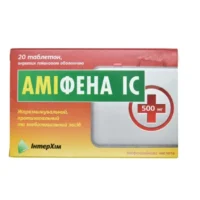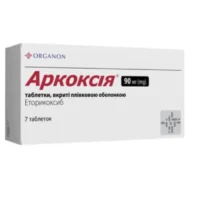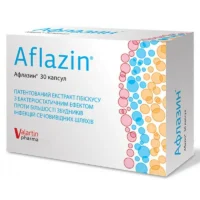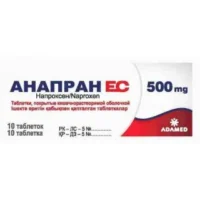Description
Mefenaminca (Mefenamic Acid) Coated Tablets 500 mg. №20
Ingredients
Each coated tablet contains 500 mg of Mefenamic Acid.
Dosage
The usual dose is 500 mg to 1000 mg per day in divided doses.
Indications
Mefenaminca tablets are indicated for the relief of mild to moderate pain, including menstrual pain.
Contraindications
Do not use Mefenaminca if you have a history of allergic reactions to NSAIDs or if you have active peptic ulcers.
Directions
Take the tablets with food or milk to reduce the risk of stomach upset.
Scientific Evidence
Mefenamic acid, the active ingredient in Mefenaminca tablets, is a nonsteroidal anti-inflammatory drug (NSAID) that works by inhibiting prostaglandin synthesis, thereby reducing inflammation and pain. Studies have shown that Mefenamic acid is effective in managing pain associated with conditions like dysmenorrhea and arthritis.
Additional Information
Mefenaminca tablets have been well-tolerated in clinical trials, with the most common side effects being gastrointestinal disturbances. It is important to follow the prescribed dosage and not exceed the recommended duration of use to avoid adverse effects.
Research has indicated that Mefenamic acid may offer comparable effectiveness to other NSAIDs in the management of pain, with a potentially lower risk of cardiovascular side effects compared to certain COX-2 inhibitors.





